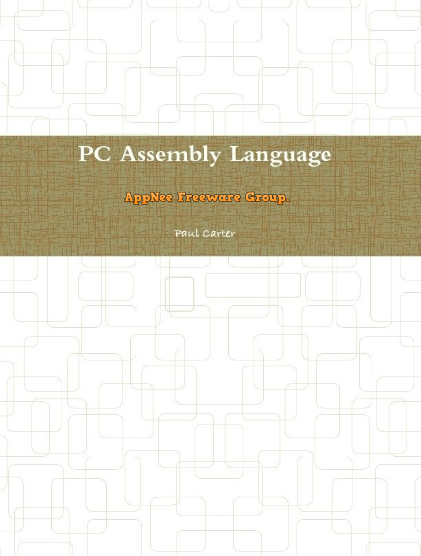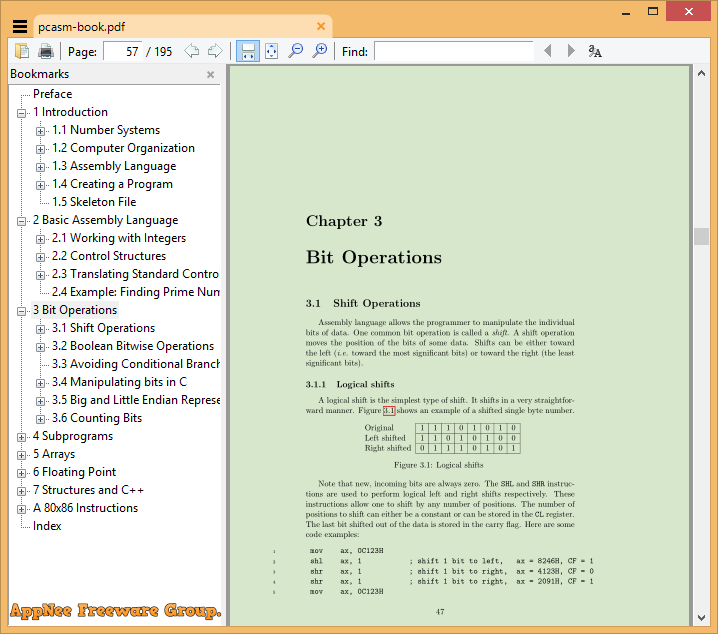
The assembly language is actually a strongly functional programming language, which can utilize all features of computer hardware and directly control them. As a machine language, corresponding to the high-level language compiler, assembly language also needs a assembler to compile its source code into executable machine code. As far as I know, there are at least two skills can not do anything without the basic knowledge of assembly language, they are reverse engineering (software cracking) and disk repair.
Before Paul Carter's PC Assembly Language book was published in 2009, it was really hard or not possible to find a textbook that covers 32-bit protected mode assembly programming on x86 platform! The appearance of this book not only fills this gap (although it's only 190 pages), more importantly, learning this course does not require you to buy expensive software. Because the entire book is based on the NASM (Netwide Assembler) and GNU's GCC (GNU Compiler Collection, for any 32-bit C compiler to work), both of which are free for use. This also means that we can finish the whole learning process and development process on Windows, Linux or FreeBSD platforms.
Anyway, if you're trying to find the best way to learn Assembly Language so as to get closer to the PC hardware and mathematics in a more scientific and reasonable way of learning it - let you create, run and debug a simple program to understand it with ease (as starting with a low-level programming language like C/C++), I think you should not miss Paul Carter's PC Assembly Language. As a matter of fact, it's so popular that it has been translated into many languages around the world.
BTW, all the examples in this book use the free NASM assembler and were developed using LaTeX. They only show for DJGPP in the book, but also work with other compilers like Borland, Microsoft, Open Watcom and Linux C.

Table Of Contents
- Introduction
- Basic Assembly Language
- Bit Operations
- Subprograms
- Arrays
- Floating Point
- Structures and C++
Book Example Codes
Prompts
- The tutorial only covers programming under 32-bit protected mode and requires a 32-bit protected mode compiler. It is possible to use the book and examples on a 64-bit OS; however, the programs will be running in 32-bit mode and cannot use any 64-bit functionality.
Related Links
Download URLs
| License | Format | Download |
| Free Book |
|